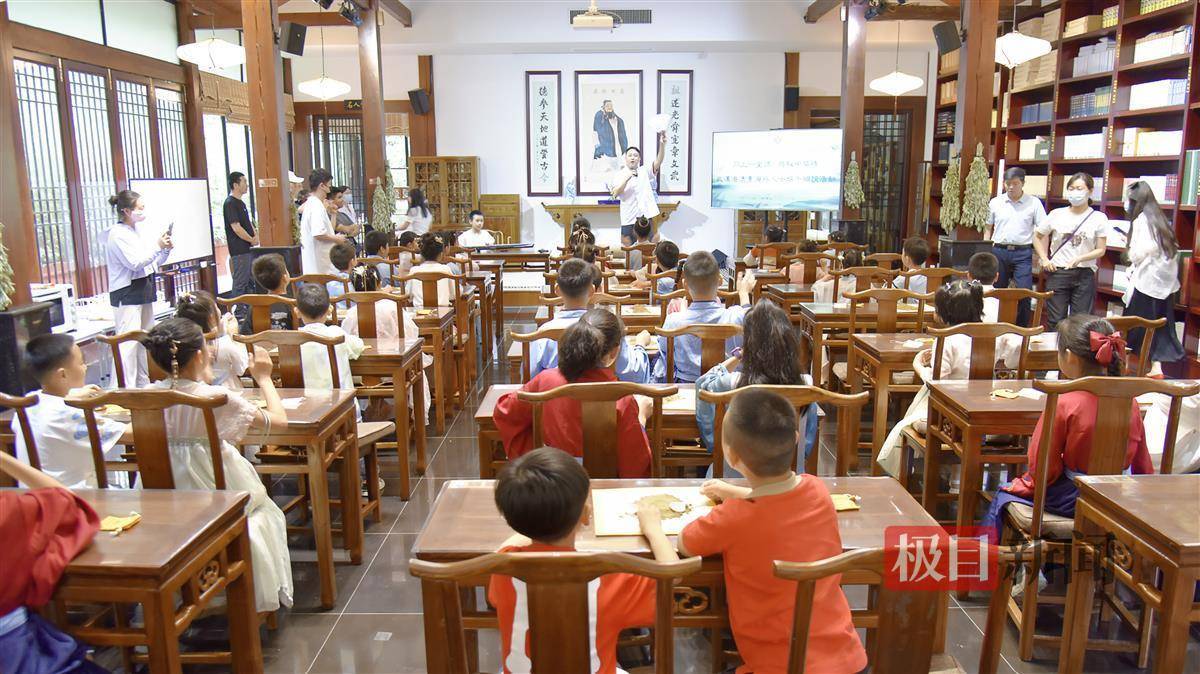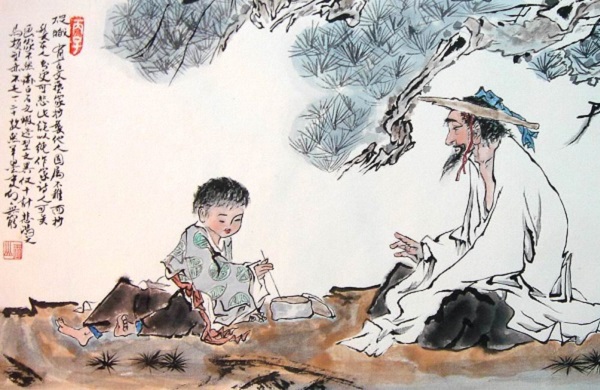中国古代寓言用英语怎么写作文 带中文翻译
发布时间:2024-11-27 16:53:42来源:
The Wisdom in Ancient Chinese Fables
In the long history of China, ancient Chinese fables have been passed down from generation to generation, carrying profound wisdom and moral teachings within their simple yet vivid stories. These fables, with their unique charm, not only entertained people in ancient times but also continue to inspire and enlighten us today.
One of the most famous fables is "The Tortoise and the Hare." In a beautiful forest, a hare, known for its swift running speed, was very proud of its natural talent. One day, it challenged a tortoise to a race. The hare thought it would be an easy win, so during the race, it took a nap halfway, feeling completely confident. However, the tortoise, slow but steady, kept moving forward step by step without stopping. To everyone's surprise, the tortoise finally crossed the finish line first while the hare was still sleeping soundly. This fable teaches us that overconfidence and laziness can lead to failure, and perseverance and steady efforts will bring success in the end. It reminds us that no matter how talented we are, we should not underestimate others or slack off in the pursuit of our goals.
Another remarkable fable is "The Farmer and the Snake." On a cold winter day, a farmer found a snake frozen on the roadside. Feeling pity for it, he picked it up and put it in his warm bosom to save its life. But as the snake thawed, it regained its vicious nature and bit the farmer, who was then seriously injured. The moral of this story is clear: we should be cautious of showing kindness to those who are inherently malicious. Sometimes, misplaced compassion can bring harm to ourselves. It warns us to have a discerning eye and not be blindly benevolent without considering the true nature of the recipient.
"The Crow and the Pitcher" is also a classic. A thirsty crow found a pitcher with a little water at the bottom, but the neck of the pitcher was too narrow for it to reach the water. Instead of giving up, the crow thought of a clever idea. It picked up small stones one by one and dropped them into the pitcher. Gradually, the water level rose, and the crow was able to quench its thirst. This fable shows us that when facing difficulties, we should use our brains, think creatively, and find solutions through our own efforts rather than simply complaining or giving up helplessly.
These ancient Chinese fables, like bright pearls, are embedded in the cultural treasure trove of China. They are not only interesting stories but also mirrors that reflect human nature and valuable life lessons. They guide us to be humble, hardworking, discerning, and resourceful in our daily lives, helping us make better decisions and grow into wiser individuals. We should cherish these fables and pass on their wisdom to future generations so that more people can benefit from the insights hidden in these ancient tales.
《中国古代寓言中的智慧》
在中国悠久的历史长河中,中国古代寓言代代相传,在其简单却生动的故事里蕴含着深刻的智慧与道德教诲。这些寓言以其独特魅力,不仅在古代娱乐大众,如今也持续激励、启迪着我们。
最为著名的寓言之一便是《龟兔赛跑》。在一片美丽的森林里,一只以奔跑速度快著称的兔子,对自己的天赋颇为自得。一天,它向乌龟发起赛跑挑战。兔子觉得自己必胜无疑,所以在比赛途中,跑到一半便打盹儿了,一副胸有成竹的模样。然而,乌龟虽行动迟缓,却步伐稳健,一步一步不停歇地向前挪动。令人惊讶的是,最终乌龟率先冲过终点线,而兔子还在呼呼大睡呢。这则寓言教导我们,过度自信与懒惰会导致失败,而坚持不懈与踏实努力终会迎来成功。它提醒我们,无论自身天赋多高,都不应轻视他人,也不能在追求目标的道路上懈怠。
另一则引人注话的寓言是《农夫与蛇》。在一个寒冷的冬日,一位农夫发现路边有条冻僵的蛇。出于怜悯,他将蛇捡起,放入温暖的怀中,想要救它性命。可蛇一解冻,便恢复了恶毒本性,咬了农夫一口,致使农夫重伤。这个故事的寓意很明晰:我们对本性恶毒之人施善时需谨慎。有时,错付的同情心会给自己招来伤害。它告诫我们要有辨别力,不能在不考量对方本性的情况下盲目行善。
《乌鸦喝水》也是经典之作。一只口渴的乌鸦发现一个水罐,罐底仅有一点水,但罐口太窄,它够不着水。乌鸦并未放弃,而是想出一个妙招。它一颗颗捡起小石子,丢进水罐里。渐渐地,水位上升,乌鸦得以解了渴。这则寓言启示我们,面对困难时,应当动脑筋、创造性思考,通过自身努力去寻找解决办法,而非一味抱怨或无助放弃。
这些中国古代寓言,宛如璀璨明珠,镶嵌在中国的文化宝库之中。它们不仅是有趣的故事,更是映照人性、蕴含宝贵人生经验的镜子。它们引导我们在日常生活中保持谦逊、勤勉、有辨别力且足智多谋,助力我们做出更优决策,成长为更睿智的个体。我们应当珍视这些寓言,将其中智慧传承给后代子孙,好让更多人能从这些古老故事蕴藏的深刻见解中获益。
(责编: admin)
免责声明:本文为转载,非本网原创内容,不代表本网观点。其原创性以及文中陈述文字和内容未经本站证实,对本文以及其中全部或者部分内容、文字的真实性、完整性、及时性本站不作任何保证或承诺,请读者仅作参考,并请自行核实相关内容。







